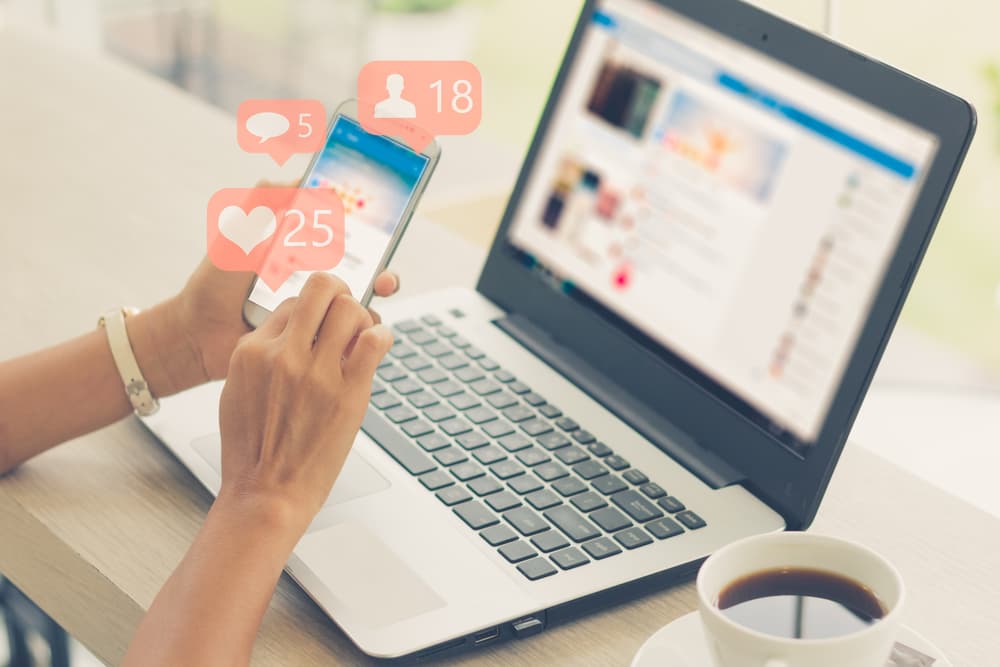“Oh no! I was just in an accident!” Nowadays, everyone must tell all their friends, fans, and followers everything that happens to them, even if it is bad. Posting on your social media accounts after you get hurt in an accident is a way to let your family and friends know you are okay, of course, and it can be exciting. But it can be bad for your case if you’re not careful.

Your Social Media Is Everybody’s Social Media
Even if all your settings are set to private, your accounts can be subpoenaed. If you fancy yourself an influencer or have a lot of Twitter followers, you probably have a public account. In either case, whatever you say on your social media becomes part of the public record. It is not confidential, and you have no expectation of privacy.
That means the insurance company and their attorneys can take whatever you say or post and use it to make a case against you following an accident. Even if you are posting a quick line to let friends know you are “fine” after a car accident, that post can be used to show you were okay, and any serious injury claims are exaggerated.
In a case that made headlines, a Canadian woman with serious depression had her insurance canceled after a Facebook post made it appear she was out partying when she was merely socializing according to the doctor’s instructions. Insurers do not want to pay you, so be careful if you use social media.
Stay Off Your Social Media Accounts
If you can, avoid your social media completely until your case is resolved. Claims adjusters can see everything you post, so the best way to avoid them is to avoid posting. Explain to your friends that they must email you for a while.
As the case of the Canadian woman shows, insurance companies will take anything out of context to prove their case. If you post a photo from several years ago, they can still use it to distort the case today. It is best if you do not post anything. Contact us immediately if you need to know more.
If You Must Post, Throttle Your Accounts
Set all your accounts to the highest possible privacy settings. Do not allow anyone to “friend” or “join” your account without your approval, and then do not give your permission to anyone you do not know. Do not allow any pictures of yourself to be tagged. Facebook has a Tag Review setting that lets you approve any tags before they are posted in other people’s posts.
Also, monitor your pages carefully for hackers. Being cautious is useless if your page is hacked and someone friends thousands of people onto your page. Investing in a good antivirus program is always worth it. If you receive any notice from a friend that they have received a “friend” request from you, block your account at once.
Contact us immediately if you have questions about your case.
Do Not Scrub Your Accounts
With all these dire warnings, you may be tempted to scrub your sites of anything incriminating. This is also a mistake. Leave your sites just as they are.
Removing data after a lawsuit has begun or is being considered is called “spoliation,” a legal term for destroying evidence. Although technically, spoliation is not a crime unless the opposing counsel has sent a warning letter, any evidence of destruction of evidence can be taken as a sign you had something to hide.
If there are pictures or posts on your social media that you think nobody should see, the best thing to do is leave them there and let your attorney know about them. Your attorney can advise you on how to handle them. Chances are nobody will notice them, and if they are discovered, they can be managed then.

If You Have a Professional Account
If you are a professional Instagrammer, influencer, or other social media professional, avoid referring to your accident or case when posting to your account. Keep yourself out of any photos. If followers ask about your accident, reply with “no comment” or something similar. If you cannot stop working, keep your accident out of your work life.
How We Can Help
You should have sound legal advice if you have been involved in any accident that could lead to a personal injury case. The Dallas personal injury attorneys of Benton Accident & Injury Lawyers can help you with all your questions, including how to handle your social media accounts after an accident. Contact Benton Accident & Injury Lawyers at (214) 777-7777 today for a free, confidential consultation, and let us help you with your questions and concerns.

